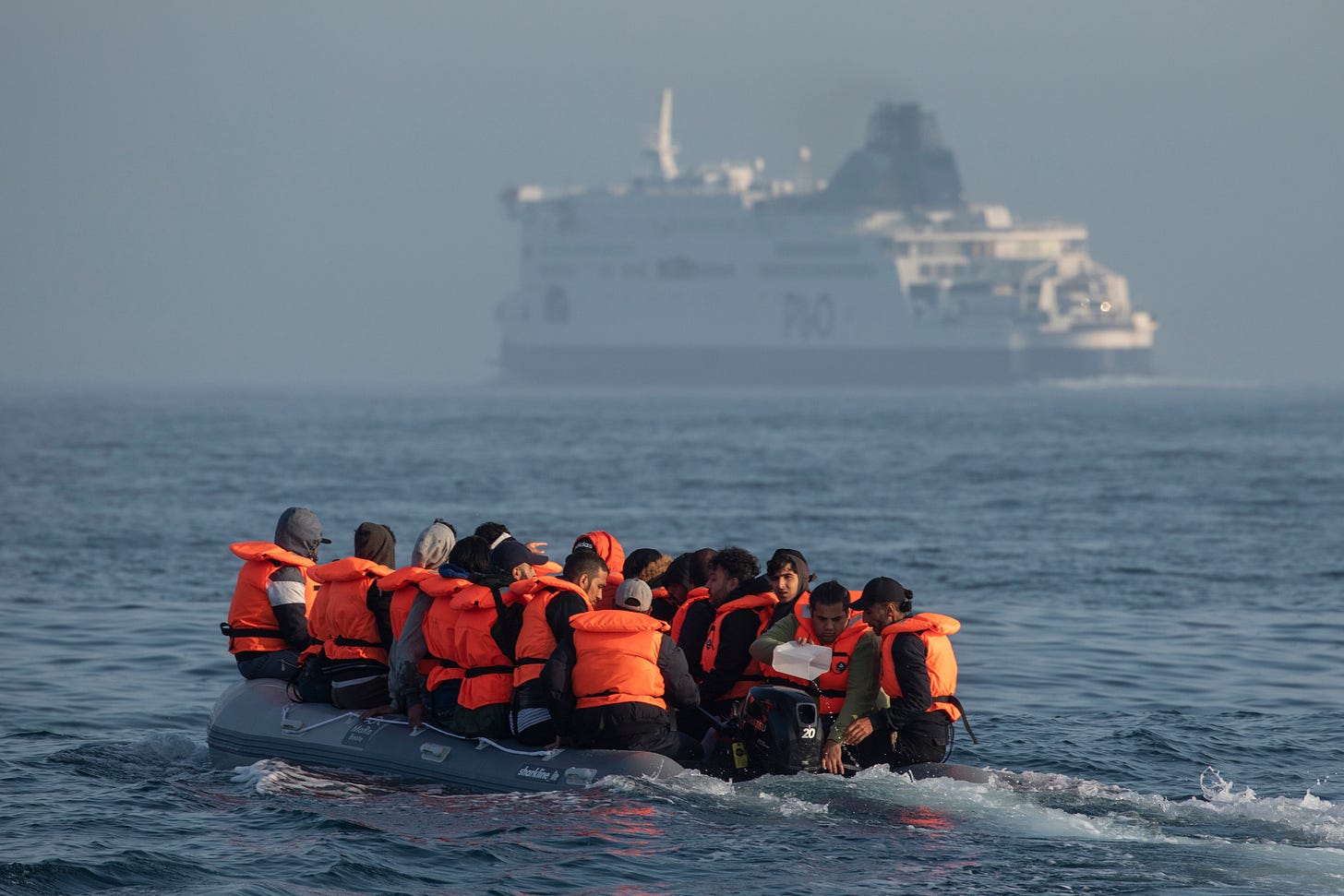Small Boats, Big Problems
The crisis unfolding at the border doesn't just create headaches for the new Labour government. It risks unraveling the trust voters have with the political system itself.
On Thursday, the UK Border Force did the unthinkable. After years of hesitation, a British government sanctioned vessel transported 13 asylum seekers that were attempting to cross the Channel back to Calais, amid signs of closer Anglo-French cooperation on the small boats crisis.
It was an unprecedented move, marking the first time the Border Force had directly involved itself in deterring crossings from the continent. As this was taking place, Keir Starmer, hosting a major summit of European leaders at Blenheim Palace, said he is ready to explore sending migrants intercepted in the Channel to countries abroad to have their asylum applications decided.
Yvette Cooper, the Home Secretary, recently announced the establishment of a new border security command. Work to recruit its leader is under way, with the Government preparing a Bill to create counter-terror powers aimed at tackling organised immigration crime. The Home Office says the command leader – expected to be appointed within weeks – would harmonize the work of intelligence agencies, police, Immigration Enforcement and Border Force, enabling them to “tackle the root of the problem” by targeting the criminal smuggling gangs “making millions out of small boat crossings, undermining our border security and putting lives at risk.”
Starmer’s recent rhetoric, combined with tangible action taken by Yvette Cooper, perhaps signifies that the centre-left party is finally taking the concerns of immigration more seriously than they have in the past. And they have good reason to. Immigration currently ranks as voters’ 3rd most salient issue, falling just behind the cost of living and healthcare, and remains a ticking time bomb that, if left unresolved, could jeopardise the new incumbent government’s popularity. If Starmer wishes to govern for a second term - as he’s hinted in the past - he’ll need to keep the mandate of the people to carry out his legislative agenda, which will involve moderating this burgeoning issue before it can escalate further, otherwise it will fuel a right-wing opposition looking for any weaknesses to exploit.
It will be interesting to see if Starmer continues this hardline stance as he settles into 10 Downing Street or if he’ll succumb to the pressure from the vocal minority within his party, some of whom are pushing for a amnesty to illegal immigration. The high aspirations of campaigning often clash with the hard reality of governing. After all, Boris Johnson began his premiership claiming to fix the issue only for annual numbers to spiral out of control as his newly-introduced visa regime lowered the threshold for entry for migrant workers.
Figures recently released by the ONS show that 484 migrants have reached the UK since the prime minister scrapped Rishi Sunak’s Rwanda deportation scheme on day one of his Government, taking the provisional total for the year to date to 14,058. This is 10 per cent higher than the number recorded the same time last year – 12,772 – and up six per cent on the same period in 2022, when the figure stood at 13,318, according to government data.
Everyone agrees this is not sustainable. As temperatures soar across the globe, the UK and the West may find themselves confronted with new climate refugees, hoping to escape the droughts and environmental collapse looming over Sub-Saharan Africa. When hundreds of thousands, if not millions, soon pour over Europe’s borders, what will Starmer’s response be? Will it be inertia or will it be action?
That’s why now is the time for Labour to confront the awful reality of the UK’s disorganised and archaic asylum system. Simple platitudes about courting European allies will not suffice until tangible changes are felt. If international co-operation merely results in refugees being swapped between countries, the problem will only persist. Tackling the small boats crossing at the source, destroying the human trafficking gangs and ramping up deportation rates will not only calm the situation at the border but also the political environment, giving Labour more room to pursue some of their other policies. They ignore it at their own risk.


